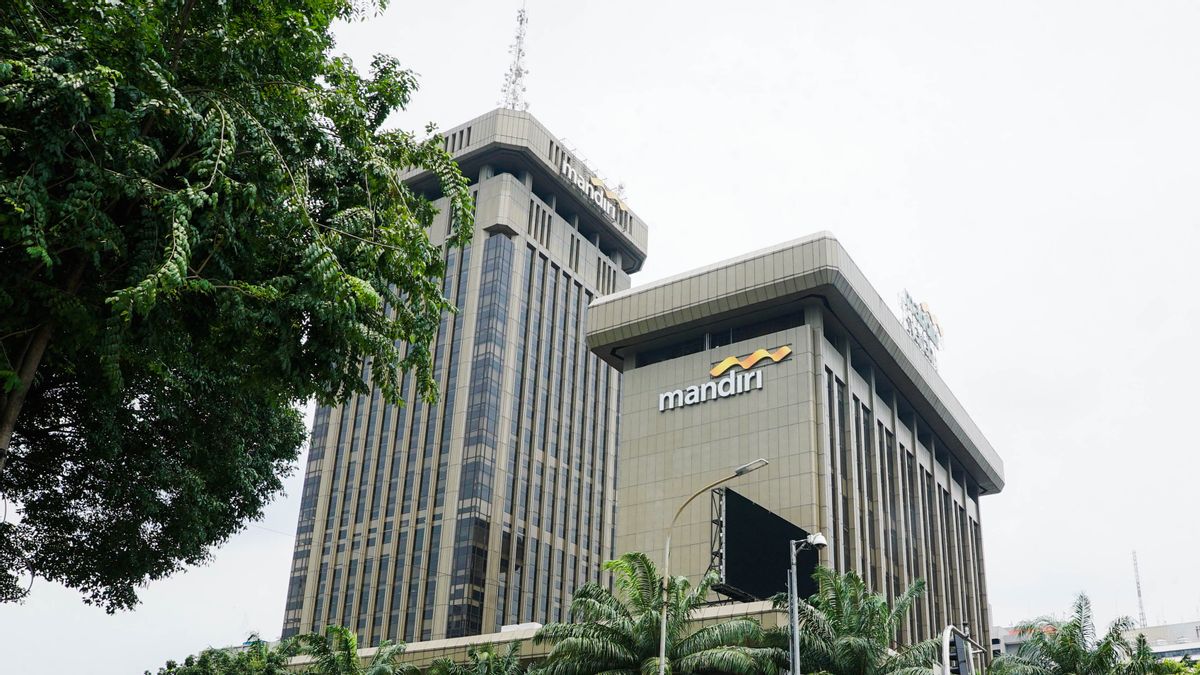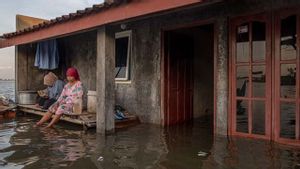JAKARTA - A number of banks, both state-owned and private, have begun to loosen credit installments for their debtors. This is in line with the efforts of the government and the Financial Services Authority (OJK) to reduce the economic impact of the spread of the corona virus or COVID-19.
For your information, OJK has implemented OJK Regulation (POJK) No.11 / POJK.03 / 2020 regarding national economic stimulus. Through this regulation, banks can provide relief to their debtors, including micro, small and medium enterprises (MSMEs), which can restructure all loans and financing from banks, with a credit value of below IDR 10 billion.
The sectors affected by the COVID-19 outbreak include tourism, transportation, hotels, trade, processing, agriculture and mining.
Based on the contents of the POJK, this restructuring can only be given after the company or MSME has been directly or indirectly affected by COVID-19.
Meanwhile, the types of restructuring that banks can provide to their debtors include lowering interest rates, extending tenors and lowering the value of principal and interest arrears. In addition, banks can also provide additional loan or financing facilities to borrowers or convert the loan into Temporary Equity Participation.
OJK spokesperson Sekar Putih Djarot said that his party had recorded a number of banks that had committed to provide relief, both state-owned and private.
Several commercial banks that have provided this policy include BUKU IV banks such as PT Bank Mandiri Tbk (Bank Mandiri), PT Bank Rakyat Indonesia Tbk (BRI), PT Bank Negara Indonesia Tbk (BNI). Bank Mandiri and BRI provide relief to postpone payment of obligations to debtors who are affected by this pandemic.
BNI also provides a relaxation policy through restructuring for its debtors. However, this relief will later be adjusted to the conditions and types of business run by each customer.
Then, PT Bank BTPN Tbk (BTPN) specifically said that it would provide credit relief to its debtors with a maximum ceiling value of Rp. 10 billion, who are informal workers, daily income and micro and small businesses. Another requirement is that this debtor has no arrears of more than 90 days until April 1 and is given up to one year ahead.
Then, for PT Bank Pan Indonesia Tbk (Panin Bank) and PT Bank Permata Tbk (Permata Bank) provide policies for credit restructuring in the form of extending the credit period, delaying payment of principal installments to reducing interest payments with a period of time and terms adapted to conditions economy.
In addition, PT Bank DBS Indonesia, PT Bank Index Selindo and PT Bank Ganesha Tbk (BGTG) have also expressed their commitment to the same thing.
"Bank Nobu, Bank Victoria, Bank Jasa Jakarta, Bank MAS, Bank Sahabat Sampoerna, IBK Bank and Bank Capital. Bank Bukopin, Bank Mega, Bank Mayora, Bank UOB, Bank Fama, Bank Mayapada, Bank Mantap, Bank Resona Perdania, Bank BKE, Bank BRI Agro, Bank SBI Indonesia, Bank Artha Graha, Bank Commonwealth and Bank HSBC, "he said, through a written statement received by VOI, in Jakarta, Tuesday, March 31.
Then, continued Sekar, there are Bank ICBC, Bank Oke, JP Morgan Chase Bank Jakarta Branch, MNC Bank, KEB Hana Bank, Shinhan Bank, Standard Chartered, Bank of China, BNP Paribas, Bank Artos and Bank Ina Perdana.
According to Sekar, there are also several other banks such as Sharia Commercial Banks (BUS), Regional Development Banks (BPD) and Rural Banks (BPRs) which also provide credit relief.
"Do not believe the hoaxes circulating. Contact the call center of the bank or finance company for further information," he said.
For your information, the period for this restructuring varies greatly depending on the bank's assessment of its debtors with a maximum period of one year.
Bank Takes Risk
Meanwhile, banking observer Paul Sutaryono said that the issuance of POJK will greatly help the business world and the real sector to survive amid the pressure of the COVID-19 outbreak.
Even so, Paul reminded debtors to understand that not all requests for credit concessions in the form of credit restructuring can be approved by banks.
"This means that banks will be selective in determining the credit restructuring carefully. This is all to help the economy recover during and after the impact of the coronavirus," Paul said when contacted by VOI, Wednesday, April 1.
On the other hand, Paul also explained that there was no negative impact from the credit restructuring. However, the bank will bear the potential risk in the form of an increase in non-performing loans (NPL) if the restructuring is not carried out properly by the debtor.
The English, Chinese, Japanese, Arabic, and French versions are automatically generated by the AI. So there may still be inaccuracies in translating, please always see Indonesian as our main language. (system supported by DigitalSiber.id)













